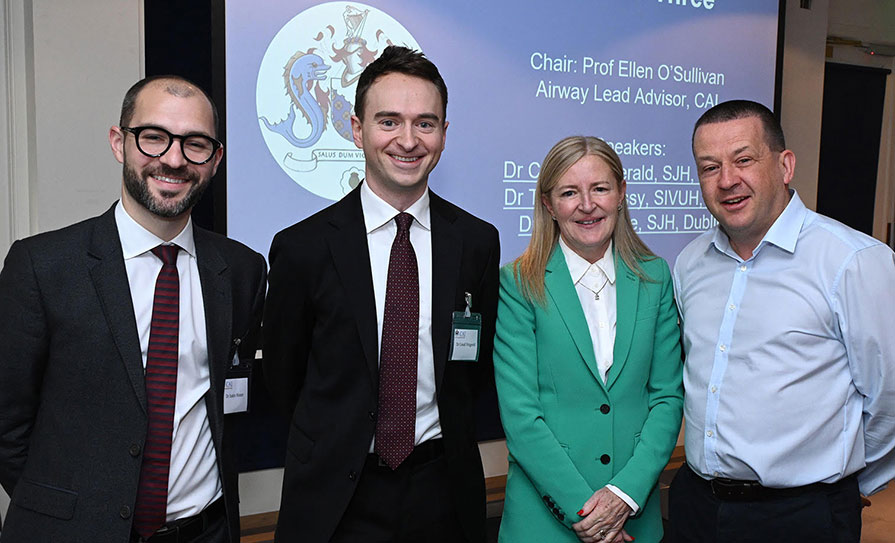Titled <em>Intrapartum Death and Doctors: A Qualitative Exploration</em>, the study involved interviews with 10 obstetric doctors and is part of a larger, ongoing study also looking at the impact of IPD on midwives.
“Devastation, shock, sadness, fear and guilt were some of the emotions experienced by doctors in the aftermath of an IPD,” the study authors wrote.
“The impact of IPD on obstetric doctors is profound and long-lasting and doctors are the second victims of these events. This needs greater acknowledgement and acceptance. The development of timely and effective emotional support interventions for all obstetricians is of crucial importance.”
The topic is hugely under-researched internationally, according to study co-author Dr Karen McNamara, an obstetric specialist registrar/trainee currently undertaking her PhD at University College Cork (UCC).
Dr McNamara will be highlighting her findings at the upcoming International Stillbirth Alliance (ISA) Conference in Cork later this month.
She believes doctors tend to try and shoulder the burden of responsibility when an IPD occurs.
“We get up every morning to improve care for our mothers and babies and to do as much as we can to have a healthy, happy outcome.
“Unfortunately, and sometimes despite best maternity care, adverse events still happen. We are unfortunately unable to prevent all adverse events in pregnancy. ”
She also believes that the current media treatment/opinion of maternity services in Ireland is hostile and that this is having a negative impact on maternity staff.
“The way the media reports IPD and other ‘maternity scandals’ is neither truthful or factual and I am aware that this opinion is shared by some of my colleagues. This also seems to be a relatively recent development.
“I have seen friends and colleagues absolutely broken physically and emotionally after being involved in these cases and that is really difficult to watch. These are people who are so good at their jobs and who have contemplated leaving obstetrics/midwifery as a result of these cases.”
There also appears to be little-to-no awareness among the public that pregnancy is not without risk, Dr McNamara said.
Dr Keelin O’Donoghue, Consultant Obstetrician at Cork University Maternity Hospital (CUMH) and Chair of the National Implementation Group for the HSE National Standards for Bereavement Care, said other research from her Group confirms the lack of public knowledge concerning the incidence, risk factors and causes of stillbirth.
Further, she maintains that Ireland’s media treatment of adverse obstetric events is different compared to other countries.
“Our current way of dealing with obstetric adverse events is unfortunately unique — instant headline news and prime-time TV focus, with immediate attribution of blame and search for fault before facts,” Dr O’Donoghue said.
This is also beginning to affect research output, according to Dr O’Donoghue. An international reviewer recently suggested that the perceived culture in Ireland, where the media and the litigation processes are much more personal against obstetricians, is now a factor in whether findings from Irish studies such as these are transferable to the wider obstetric population.
The ISA Conference will take place on 21 and 22 September. See http://isacork2017.com for more information.










Leave a Reply
You must be logged in to post a comment.